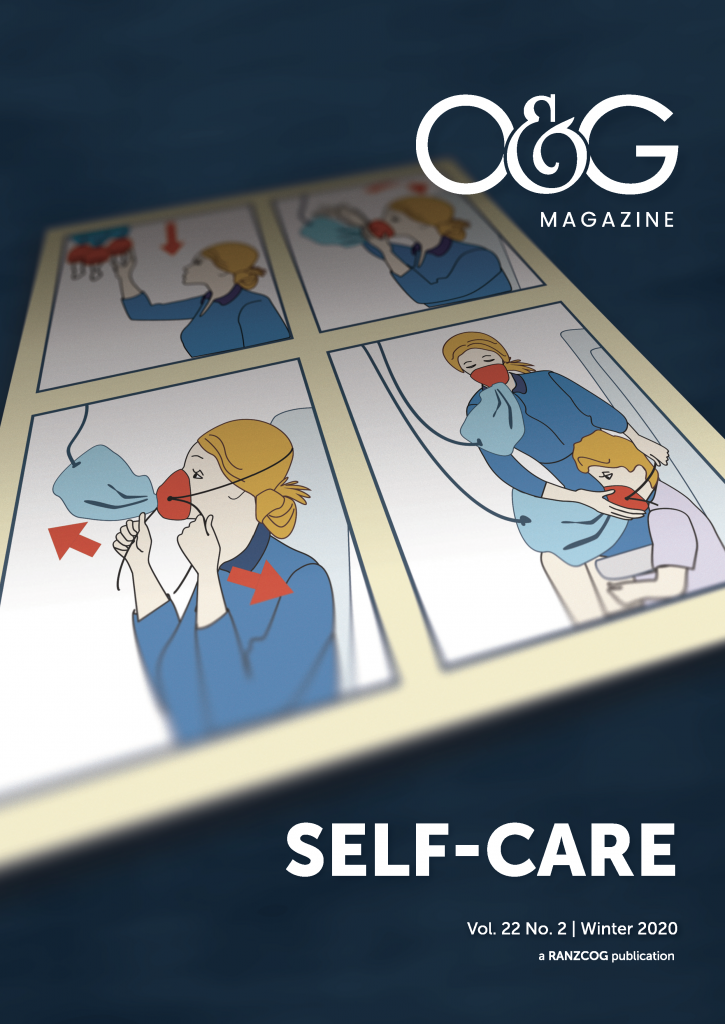‘When one subtracts from life infancy (which is vegetation), sleep, eating and swilling, buttoning and unbuttoning – how much remains of downright existence? The summer of a dormouse.’
– Lord Byron
When I was asked to write an article on the work-life balance, I wondered if I was qualified to do so. Then I thought back to 1987 when I started in rural practice in the picturesque small town of Mudgee.
My working week involved working in the practice, doing house calls, visiting the nursing homes, being on shared call for obstetrics and anaesthetics and doing at least one 24-hour shift in our emergency department. I thought I would do five–10 years in country practice and then move back to the coast to a practice with more civilised after-hours arrangements. Now, 33 years later, my wife and I are still here and are lucky enough to have our daughter and her three children living around the corner.
This was an intense workload and, at the beginning, a fascinating engrossing time. The more work you did the more it would draw you in. Being so needed was endlessly gratifying and deeply satisfying. However, with time, it becomes obvious that this kind of life is disturbingly unbalanced.
Fortunately, the practice I joined was aware of this and had a policy of eight weeks annual leave, 18 weeks off every fifth year, an afternoon off per week and Friday off when you’d worked the previous weekend. This pattern suited me well and I have maintained it long after that partnership dissolved and we were allowed to work whatever hours we thought reasonable. This way of life led to my brother re-christening me Doc Holiday. When one of our registrars asked what holidays he should take, I suggested as many as he liked so long as it wasn’t more than me. He was delighted.
The formula of about 10 weeks on then two weeks off seemed to work the best. Two weeks gave you enough time to unwind and reconnect with family and friends without being too obtrusive to the practice. An older patient once told me that the cemetery is full of irreplaceable people. Our patients love us to be there for all of their major health events, but it is just not possible. I respond with a good-natured laugh when my patients say, ‘you’re not going away again, are you?’ I tell them I’m sharpening my axe.
The opportunity to have a break need not be just about holidays. On my first 18-week sabbatical, I spent a month at the Royal United Hospital in Bath doing caesareans to brush up my skills as this was becoming a bigger part of my obstetric practice. The whole family came along and they speak glowingly of those beautiful Bath summer days with hot air balloons appearing soundlessly over the bucolic landscape.
The next long break gave me the opportunity to visit a friend who was establishing a paediatric school of medicine in Blantyre, Malawi. I did ward rounds with him in the morning and visited some of the small outposts providing healthcare in country areas. I was also able to visit the horrifying Zomba Psychiatric Hospital, with its 19th-century management of some very unfortunate people. We went on weekends to scuba dive in Lake Malawi and hike in the magnificent Mulanje Plateau with ancient cedar forests and clear streams full of trout.
One other very exciting opportunity was doing a month rural placement on Vancouver Island in British Columbia. This enabled me to see another nation’s health system from the inside and see some beautiful countryside. The GP I replaced interestingly had cut his working week to two and half days to allow more time for sailing round Vancouver Island.
Over the last decade, I have rekindled my love of surfing and have been lucky enough to have trips to the Maldives, Sumatra, New Guinea and West Samoa with a group of old uni mates. The surfing stories are becoming more heroic as the years go by.
Breaks away are an excellent way to reconnect with family and reinvigorate your love of medicine, but day-to-day self management is also vital. Having an excellent practice manager to take away the daily management issues is vital. A sensible appointment system that doesn’t always find you becoming later and later as the day goes on is important. Spending time with your fellow doctors and staff builds team rapport and can be as simple as making it to morning tea break as often as possible. Some time through the week either to catch up on paperwork, read the latest journals or indulge your favourite pastime really helps. Outside medicine it is really helpful to have non-medical friends who can ground you into what a normal life looks like. You will never regret time you spend with family over the years but you will regret the time you don’t. Teaching students and registrars is a wonderful circuit breaker from the day-to-day job. Being involved in the community is great if you have time. I have delivered a baby in the afternoon and served popcorn at the movies in the evening for one of our local charities. A retired professor of gynaecological oncology is often helping as well.
I have tried yoga and meditation and have found both helpful. Running or bike riding are excellent to lower stress levels if your joints allow but walking, especially in a natural setting, is equally helpful. Finally, sharing your problems and emotions with someone whose opinion you value is very calming, even if you have already mapped out your course of action. This is a sign of emotional maturity, not weakness.
Everyone’s situation is different, and I can of course only discuss what has worked for me and hope these ideas are helpful for you.






Leave a Reply